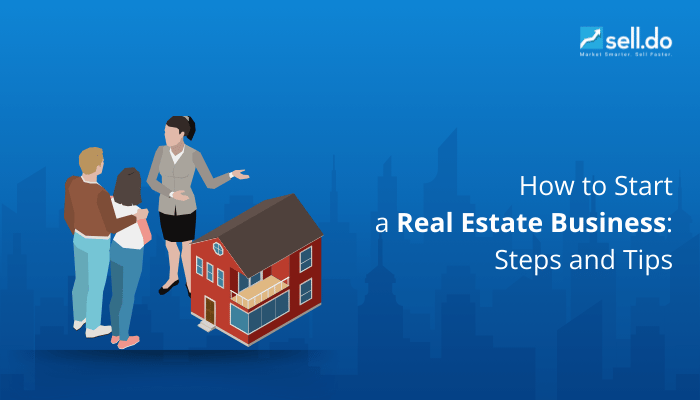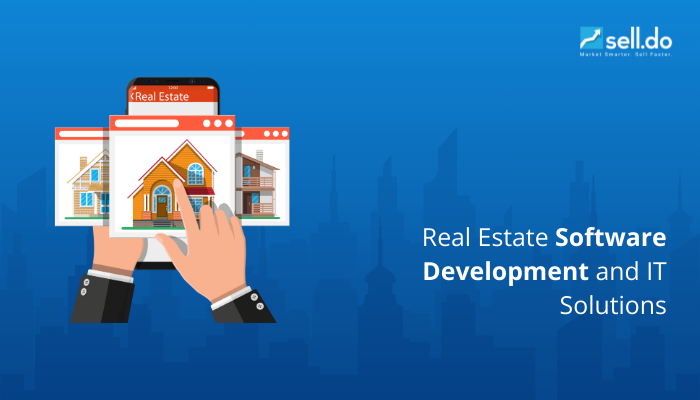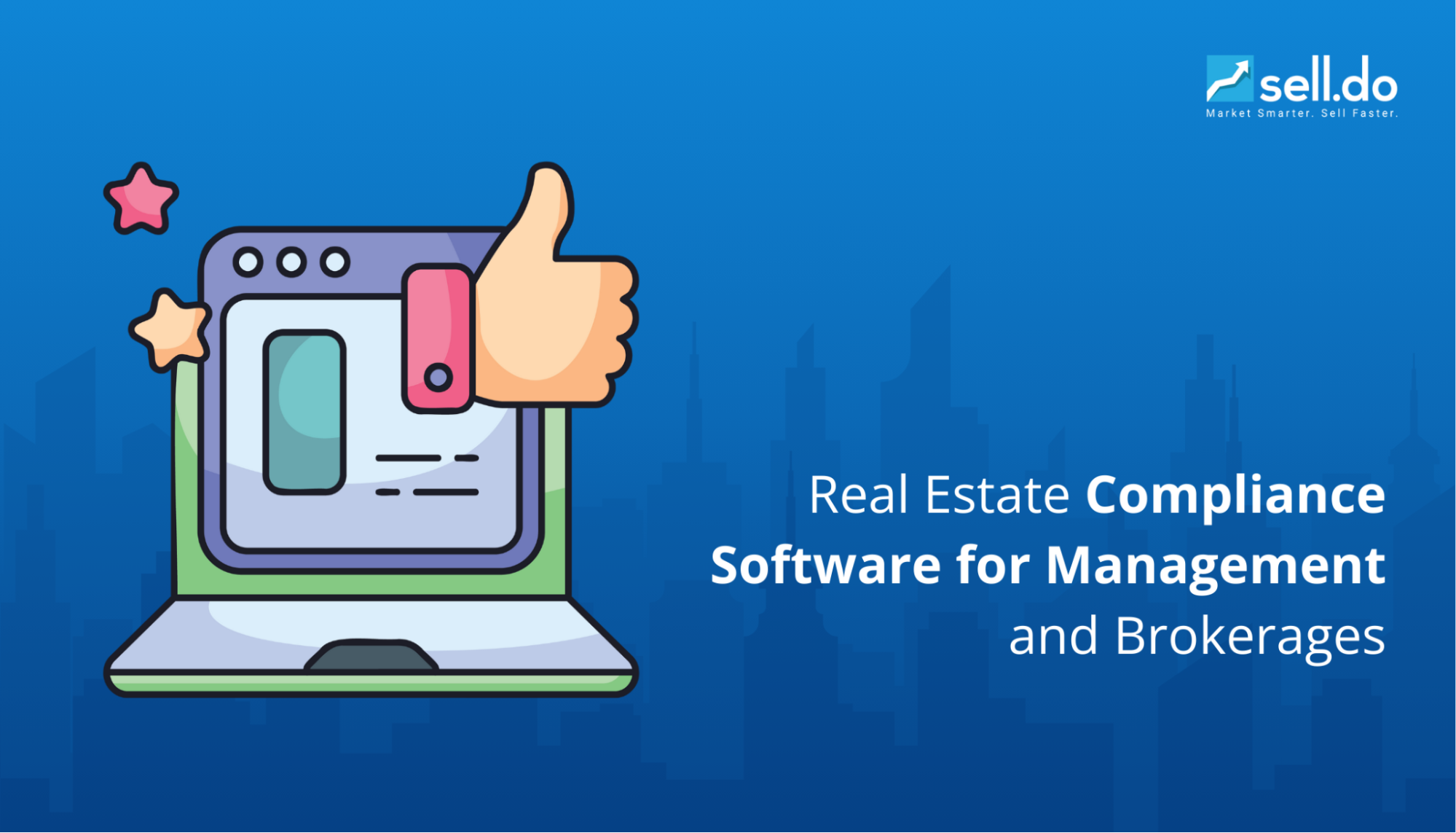If you’re asking, is real estate a business worth investing in, the answer is a definitive yes. Real estate offers vast potential for those who understand the market, target the right audience, and use strategic planning to stand out from the competition.
However, turning real estate into a successful business requires more than buying and selling properties — it involves thorough market research, effective branding, and a strong marketing strategy to build a loyal client base.
By the end, a clear roadmap will help you navigate the complexities of the real estate world and transform your passion into a profitable venture.
Is Real Estate a Business?
Absolutely — real estate is a business that offers immense potential for profit and growth. It involves much more than buying and selling properties; it requires strategic planning, market research, branding, and effective marketing to stand out in a competitive market.
Whether you’re a developer or a brokerage firm, treating real estate as a business means understanding market dynamics, targeting the right audience, and building strong relationships to drive sales and success.
Why to Start a Real Estate Business?
Starting a real estate business is a powerful way to build wealth, achieve financial independence, and create a lasting legacy. The real estate market is not only vast but also resilient, with the global market expected to surpass $5.85 trillion by 2030.
This industry offers diverse opportunities—from residential and commercial properties to investment ventures—that cater to various interests and financial goals.
Additionally, as a real estate entrepreneur, you can be your own boss, control your schedule, and scale your business at your own pace, making it a compelling choice for those looking to secure long-term success.
Ready to turn real estate into a thriving business? Take a look at this step-by-step guide below.
Step 1: Research and Understand the Real Estate Market
If you're a real estate developer or brokerage firm, understanding the market dynamics isn't just valuable — it's critical. Answering the question, 'Is real estate a business,' takes on unique significance for you.
Real estate is undeniably a business, but you need a strategic approach fueled by data-driven market research to thrive. Using a robust CRM system like Sell.Do can streamline your operations, optimize customer interactions, and supercharge your sales and marketing efforts.
-
Importance of Market Research for Real Estate Professionals
Market research is your compass in the real estate landscape. For developers and brokerages, it’s more than just knowing the market; it’s about using that knowledge to tailor your offerings, target the right buyers, and craft winning marketing strategies. Here’s how you should approach it.
- Local Economy Insights: Understanding the local economy is crucial for strategic decisions. Look beyond the surface — assess economic indicators like GDP growth, employment rates, and consumer spending in the area.
- Population Growth Analysis: Knowing where the population is growing or declining helps you forecast demand. Are millennials moving to your area, or is there an influx of retirees?
- Tracking Housing Trends: Real-time data on housing trends can inform whether you should focus on luxury condos, affordable housing, or commercial developments.
Understanding what buyers want—such as smart homes, sustainable buildings, or work-from-home amenities—can guide your project planning and marketing campaigns.
-
Key Factors in Assessing Real Estate as a Viable Business
Several critical factors need your attention to determine whether real estate is a viable business, particularly for developers and brokerage firms. Each factor represents both a potential opportunity and a challenge.
- Job Growth and Employment Trends: Job growth attracts new residents, increasing the demand for housing. Pay attention to cities or neighborhoods experiencing economic expansion, such as new tech hubs or business districts.
- Current Housing Inventory: Monitor available inventory to understand the supply side of the market. If inventory is high, it might signal a buyer's market, where competitive pricing and enhanced customer experience will be crucial.
- Competitor Analysis: Knowing your competitors' actions can provide a competitive edge. With a comprehensive CRM, you can track competitor listings, monitor pricing strategies, and identify gaps in their offerings.
- Interest Rates Monitoring: Interest rates impact borrowing costs, directly influencing buyers' purchasing power. Use your CRM to automate updates on interest rate changes and adjust your sales strategies accordingly.
- Zoning Laws and Regulations: Stay updated on zoning laws that affect where and what types of properties can be developed. Use CRM tools to keep track of regulatory changes and communicate these updates quickly to your sales teams, so they’re always prepared with accurate information.
- Infrastructure and Development Plans: Proximity to infrastructure like new roads, metro lines, and commercial centers can make or break a real estate project.
- Environmental Considerations: Increasingly, buyers are concerned about environmental factors and sustainability. Monitor these trends using your CRM to adjust your marketing and sales pitches accordingly.
- Market Saturation Analysis: Determine if there’s an oversupply of similar properties in your target area.
Also Read: Best Real Estate CRM and Lead Management Software in 2024
Step 2: Identify Your Niche and Target Audience
To succeed in the real estate business, it's essential to define your niche and understand your target audience. Focus on a specific property type or client demographic to create targeted marketing strategies, increase customer satisfaction, and drive more sales.
-
Specialization
Specializing in a specific property type or client type helps you stand out and attract the right clients.
- Property Type: Focus on a niche like residential (single-family homes, condos) or commercial properties (office spaces, retail). Specializing allows you to offer targeted solutions and expertise.
- Client Type: Define your target clients, such as first-time homebuyers, investors, or luxury clients. Knowing your client type allows you to tailor your marketing to their specific needs.
-
Audience Understanding
Understanding your audience helps you craft personalized marketing that resonates.
- Demographics: Know your target audience's age, income, and family status. For example, luxury clients may be high-net-worth individuals or retirees.
- Interests and Lifestyle: Identify what matters to your audience, like sustainability, smart homes, or proximity to amenities, so you can highlight relevant property features.
- Buying Behavior: Understand their decision-making process. Use your CRM to track preferences, such as a reliance on online reviews or a need for financial guidance.
-
Market Trends
Stay on top of market trends to keep a competitive edge.
- Monitor Trends: Follow changes like increased demand for home offices or sustainable properties. Use CRM tools to adapt your strategies.
- Be Flexible: Adjust your business model to meet market shifts, such as offering virtual tours or digital closings.
Also Read: Strategies for Real Estate Lead Generation in 2024
Step 3: Obtain the Necessary Licenses and Certifications
To build a successful career in real estate, you need to secure the appropriate licenses and certifications. You must secure these credentials are essential to operate legally, gain credibility, and access more business opportunities.
-
State Requirements
Real estate licensing requirements differ by state. Knowing these prerequisites will help you understand what is needed to get started in your area.
Requirement
Details
Pre-Licensing Education
Complete a course (40-180 hours, depending on state regulations).
State Licensing Exam
Pass an exam covering real estate laws, practices, and ethics.
Background Check
Undergo fingerprinting and a criminal background check (required in most states).
-
Realtor TitleWhile being licensed allows you to work as a real estate agent, becoming a Realtor can provide additional advantages, like the following.
Benefit
Details
NAR Membership
Join the National Association of Realtors to use the "Realtor" title.
Access to Resources
Gain access to market data, professional development, and networking events.
Code of Ethics
Adhere to a strict code of ethics, enhancing credibility with clients.
-
Initial Brokerage
After obtaining your license, you need to find a brokerage to sponsor you. Fine more details in the table below.
Consideration
Details
Training and Mentorship
Choose a brokerage that offers training programs and mentorship opportunities.
Commission Splits
Understand the commission structure and how it impacts your earnings.
Company Culture
Ensure the brokerage’s values align with your professional goals.
Support and Resources
Evaluate the level of marketing, administrative support, and tools provided.
If you’re looking to build a thriving real estate business, Sell.Do is your ultimate partner for optimizing operations, boosting customer engagement, and driving growth.
Discover how their powerful CRM can help you make informed decisions, manage your leads efficiently, and outperform the competition.
Step 4: Create a Comprehensive Business Plan
Crafting a business plan for your real estate venture is more than just a formality; it's your blueprint for growth and success. A comprehensive plan helps you clarify your vision, attract investors, align your team, and adapt to market changes.
Let’s dive deeper into the essential elements and innovative strategies that will help you build a standout business plan.
-
Key Components of a Real Estate Business Plan
Your business plan should be detailed and tailored to the unique dynamics of the real estate market. Here’s a breakdown of the key components and additional insights to make your plan stand out.
Component
Description
Hot Tip
Executive Summary
A concise overview of your mission, vision, and primary objectives.
Include a compelling story or data point that highlights your unique selling proposition (USP).
Business Description
Detailed information about your services, target market, and unique value proposition.
Describe your "niche mastery". Whether it's eco-friendly homes, luxury properties, or first-time homebuyers.
Market Analysis
Research on market conditions, audience, competitors, and industry trends.
Integrate visual elements like charts or infographics to present market trends..
Marketing and Sales Strategies
Plans for digital marketing, networking, and sales tactics to attract clients.
Implement a multichannel marketing approach—combine digital (SEO, social media) with traditional methods (events, local advertising).
Financial Projections
Projections for income, cash flow, and break-even analysis.
Use scenario planning—present three different financial scenarios (best, worst, and most likely) to show preparedness for market volatility.
-
Goal Setting
Goal setting is where strategy meets execution. Break down your goals into actionable steps and timelines, ensuring they are Specific, Measurable, Achievable, Relevant, and Time-bound (SMART).
Here is an explanation of the SMART Goal Framework.
- Specific: Clearly define what you want to achieve.
- Measurable: Ensure you can track your progress.
- Achievable: Set realistic goals based on your resources.
- Relevant: Align goals with your business vision and market needs.
- Time-bound: Set deadlines to keep momentum.
-
The "5P Model" for Real Estate Success
Use the "5P Model" to structure your business strategy and ensure you cover all critical aspects, as explained below.
- Product: What are you selling? Define your property types, services, and value propositions.
- Price: How do you price competitively? Set your pricing strategy based on market analysis and value.
- Place: Where do you sell? Identify your target markets and sales channels.
- Promotion: How do you attract customers? Develop a marketing strategy using a mix of online and offline channels.
- People: Who are your customers and team? Understand your target audience and build a skilled team to serve them effectively.
-
Goal Achievement Roadmap
Create a visual roadmap to track your goals and progress. Use a Gantt chart or timeline to map out key milestones, such as the following.
Timeline
Milestone
Action Required
0-3 Months
Launch new website and social media channels
Develop content, SEO strategy, and ad campaigns
3-6 Months
Close 20 deals and expand network by 30%
Host events, run targeted ads, partner with local businesses
6-12 Months
Enter a new market and establish brand presence
Conduct market analysis, hire local agents, launch campaigns
12-18 Months
Increase revenue by 25% and expand portfolio by 15%
Optimize sales process, diversify property listings
-
SWOT Analysis
Perform a SWOT analysis to identify your competitive edge and areas for improvement. Here is a table to give you a better idea of this.
Strengths
Weaknesses
Opportunities
Threats
Strong market knowledge
Limited brand recognition
Rising demand in a new area
Market saturation
Skilled team with niche expertise
High dependency on a few clients
Increasing interest in luxury homes
Economic downturns
Innovative marketing strategies
Limited online presence
Growth of digital property platforms
Changes in real estate regulations
Also Read: Leads to Sale: A Guide of Real Estate CRM And Automation
Step 5: Develop a Strong Branding Strategy
A powerful branding strategy is essential for setting your real estate business apart in a competitive market. Your brand isn't just a logo or a name — it's the overall perception clients have of your business.
From your unique selling proposition (USP) to the visual elements, every aspect of your brand should communicate your values and the benefits you offer.
-
Brand Identity
Your brand identity is the foundation of how your business is perceived. It should convey professionalism, trust, and your unique position in the market. Start by focusing on two key elements.
Element
Details
Tips for Impactful Branding
Business Name
Choose a name that is memorable, easy to pronounce, and reflective of your niche or services.
Opt for a name that suggests expertise (e.g., "Luxury Estates Group")
Professional Logo
Design a logo that is simple, distinctive, and versatile for use across various mediums (online, print, signage).
Incorporate elements that symbolize trust and quality, such as strong fonts, clean lines, and relevant icons.
-
Unique Selling Proposition (USP)
Your Unique Selling Proposition (USP) is what makes your real estate business different from the competition. It should highlight the key benefits and value you provide to your clients. Here’s how to develop a compelling USP.
- Identify Your Strengths: Determine what sets your business apart. Do you specialize in a particular type of property, such as luxury homes or eco-friendly developments? Do you offer exceptional customer service, or have a deep understanding of local markets?
- Focus on Client Benefits: Your USP should communicate not just what you do, but how you solve a problem or fulfill a need for your clients. For example, “Providing tailored solutions for first-time homebuyers to navigate complex real estate markets” clearly conveys both the service and the benefit.
- Use Emotional Appeal: A strong USP often connects on an emotional level. Think about the emotions that drive your clients' decisions, such as trust, security, or excitement about a new beginning and reflect those in your messaging.
Here are some USP examples to get your creative juices flowing.
USP Examples
Description
“Your Local Market Experts: Bringing Decades of Knowledge to Every Deal”
Emphasizes expertise and trustworthiness, appealing to clients looking for guidance and confidence.
“Luxury Homes, Exceptional Service: Personalized Experiences for Every Client”
Highlights a focus on luxury properties and exceptional, tailored customer service.
“Green Living Experts: Sustainable Homes for a Better Future”
Targets eco-conscious clients by positioning your business as a leader in sustainable real estate.
-
Brand Elements Matrix
To build a strong brand, ensure consistency across all touchpoints. Use this matrix to define your brand elements and apply them consistently.
Brand Element
Description
Application
Tagline
A short, memorable phrase that encapsulates your USP.
Use it on your website, social media, marketing materials, and email signatures.
Color Scheme
A color palette that reflects your brand personality (e.g., blue for trust, green for growth).
Apply consistently across your logo, website, brochures, and signage.
Typography
Choose fonts that reflect your brand's style (e.g., modern, classic, bold).
Use the same fonts in all digital and print materials to maintain a cohesive look.
Visual Style
A specific look for images, videos, and graphics (e.g., clean, vibrant, luxurious).
Maintain this style across your website, social media, and any visual content.
Also Read: 7 Dynamic Marketing Strategies for Real Estate Developers in 2024
Step 6: Build a Professional Network of Contacts
Building a robust professional network is crucial in the real estate business. Your network can be a valuable source of referrals, partnerships, and insights that drive growth. By engaging with industry peers, community members, and potential clients, you establish credibility and expand your reach.
-
Networking Strategies
Effective networking requires a strategic approach that leverages multiple channels to connect with key players in the real estate industry. Here are some proven strategies to help you build a strong professional network.
Strategy
Description
Industry Events
Attend conferences, trade shows, seminars, and real estate expos to meet potential clients and partners.
Local Associations
Join local real estate associations, chambers of commerce, or business networking groups.
Social Media Partnerships
Collaborate with influencers, local businesses, or industry experts on platforms like LinkedIn, Instagram, and Facebook.
-
Community Engagement
Getting involved in your community is another powerful way to build your network and establish yourself as a trusted local real estate professional. Community engagement helps you connect with potential clients and partners in a more personal and impactful way.
- Host Real Estate Workshops: Offer free workshops or seminars on topics like home buying tips, market trends, or property investment. These events position you as an industry expert and help you meet potential clients face-to-face.
- Sponsor Local Events: Sponsor community events like charity runs, farmers' markets, or school activities. Your business name on banners, flyers, and event websites increases visibility and builds goodwill in the community.
- Participate in Local Activities: Engage in local activities such as town hall meetings, neighborhood cleanups, or charity fundraisers. This involvement shows you’re invested in the community, which can help build trust and rapport with locals.
Step 7: Develop a Real Estate Marketing Strategy
A well-rounded marketing strategy is essential for real estate businesses to attract and retain clients. This strategy should leverage multiple channels to reach your audience effectively and differentiate your brand in a competitive market.
By combining digital and traditional marketing tactics, you can create a compelling presence that draws potential buyers, sellers, and investors to your services.
-
Marketing Channels
Your online presence is the cornerstone of your marketing strategy. A professional website, engaging blog, and strong SEO tactics will help you attract organic traffic and convert visitors into leads.
Marketing Channel
Description
Tips for Effective Use
Website
Your website should be visually appealing, user-friendly, and optimized for mobile devices.
Include clear calls to action (CTAs), contact forms, and showcase listings.
Blog
Create a blog with informative articles about market trends, home buying tips, or neighborhood guides.
Use the blog to establish your expertise, build trust, and improve your website's SEO.
SEO (Search Engine Optimization)
Optimize your website and blog for search engines to increase visibility and drive organic traffic.
Focus on local SEO by targeting location-based keywords (e.g., “homes for sale in [City]”).
-
Advertising
To maximize reach and engagement, employ a mix of advertising tactics that appeal to different segments of your target audience. These tools help you connect with prospects, showcase properties, and build brand recognition.
Advertising Tactic
Description
Email Marketing
Send targeted emails to your subscriber list with market updates, property listings, and real estate news.
Social Media
Use platforms like Instagram, Facebook, and LinkedIn to share listings, market insights, and success stories.
Professional Photography
Invest in high-quality photos that showcase properties in the best light.
Virtual Tours
Offer 3D virtual tours to provide a realistic view of properties from anywhere.
-
Digital Marketing Funnel
Understanding the stages of a digital marketing funnel can help you develop strategies to guide potential clients from awareness to conversion. Look at the table below to get a fair idea of this.
Funnel Stage
Objective
Tactics
Awareness
Attract new visitors to your brand.
SEO-optimized blog content, social media ads, and local business listings to increase visibility and attract new visitors.
Interest
Engage visitors and provide value.
Regular email newsletters, social media engagement, and informative articles that address common real estate questions and concerns.
Consideration
Convert engaged visitors into leads.
Free resources like eBooks, buyer/seller guides, and market reports offered in exchange for contact information.
Conversion
Turn leads into clients.
Personalized follow-up emails, phone calls, and in-person consultations to build trust and guide leads toward making a decision.
Retention
Maintain relationships with past clients.
Ongoing email updates, client appreciation events, and exclusive offers to keep your brand top of mind for referrals and repeat business.
Also Read: Building A Stellar Email Campaign: Best Practices For Real Estate Lead Nurturing
Top 10 Tips for Building a Successful Real Estate Business
To thrive in the real estate business, you need more than just basic strategies. You need innovative approaches that set you apart from the competition.
Here are some top tips that go beyond the fundamentals to help you build a successful, dynamic, and growth-oriented real estate business.
- Develop Strategic Partnerships: Collaborate with local businesses, such as interior designers, moving companies, and contractors, to offer added value to your clients and create cross-referral opportunities.
- Create a Client Referral Program: Encourage satisfied clients to refer friends and family by offering incentives, such as discounts, gift cards, or exclusive services, to build a steady stream of new leads.
- Specialize in Underserved Markets: Identify niche markets that are underserved, such as senior living, vacation rentals, or multi-family properties, and tailor your services to meet their specific needs.
- Master Public Speaking: Position yourself as an expert by speaking at local events, real estate seminars, or webinars. Sharing valuable insights can build your reputation and expand your client base.
- Implement a Follow-Up System: Create a structured follow-up process for leads and past clients, using automated emails, phone calls, or personalized messages to nurture relationships and increase conversion rates.
- Utilize Video Marketing: Develop video content that highlights your listings, offers virtual tours, and provides market updates or educational tips to engage potential clients on platforms like YouTube and social media.
- Prioritize Reputation Management: Monitor and manage online reviews on platforms like Google, Zillow, and Yelp. Respond to feedback professionally to build a positive reputation and attract new clients.
- Host Exclusive Events: Organize private open houses, client appreciation events, or networking mixers to create a sense of exclusivity and build deeper connections with your clients.
- Offer Concierge Services: To differentiate yourself from competitors, offer concierge-style services, such as home staging, relocation assistance, or access to trusted service providers, to add value.
- Stay Educated on Market Innovations: Regularly attend workshops, webinars, and courses to stay informed about new technologies, market trends, and innovative sales techniques to maintain a competitive edge.
Also Read: The Future of AI in Real Estate Automation
Conclusion
Building a successful real estate business starts with understanding that is real estate a business worth pursuing? The answer is yes. It requires a combination of strategic planning, market understanding, and effective branding. Obtain the necessary licenses and certifications, and develop a comprehensive business plan with clear, measurable goals.
If you’re ready to build a successful real estate business, Sell.Do can be your go-to solution for streamlining operations, enhancing client interactions, and maximizing growth. Explore how their powerful CRM can help you make smarter property investments and stay ahead in a competitive market.
Schedule a free demo with Sell.Do today to see how their tools can elevate your real estate game and drive your business to new heights.






Leave a comment
Comments (0)
Be the first one to comment.